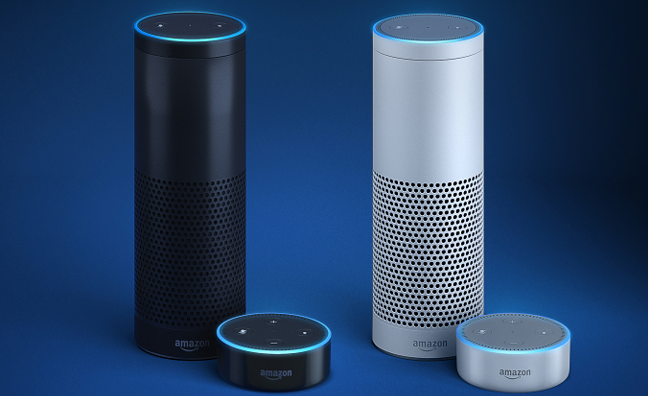“Alexa, can you break up the Spotify/Apple Music streamlining duopoly?”
Increasingly, the answer looks like a “yes”.
Because, while it may have happened when the music industry was face down in a vat of eggnog and Quality Street over the festive season, Ellie Goulding’s River reaching No.1 – despite only being available on Amazon Music – was a hugely significant moment.
Well, we say ‘despite’. In fact, River’s success was largely because of its Amazon exclusivity. Across the land, Alexa devices were being ripped from wrapping paper and gleefully instructed to “Play Christmas music”. And Amazon’s blanket playlisting of the song across its various platforms and stations ensured River was front and centre in the nation’s celebrations.
Amazon should be celebrating too, because it’s a sure sign that the retailer – already a huge player in physical music – is now catching up with Spotify and Apple Music, at least in the UK.
But, crucially, it’s not the only sign. As part of our analysis of 2019’s sales figures and market trends, Music Week spoke to top commercial label executives at leading labels and they all agreed on one thing: Amazon, whose European music division is led by Paul Firth, now means serious business.
“We have to tip our hat to Amazon who is fast becoming a very major player in this area,” David Hawkes, MD of Universal Music UK’s Commercial Division, told Music Week. “They have some really healthy numbers across Prime, the ad-funded tier which launched late summer and the full subscription tier. They’re now in the game in those three areas and their performance across all three is stellar.”
Amazon is fast becoming a very major player in music streaming
David Hawkes
Experts cite Alexa, as well as Amazon’s varied models – a limited service free with Amazon Prime; a free, ad-funded model available on Alexa-enabled devices; a standard subscription model; and an HD plan – as key to it engaging audiences that other streaming services have yet to reach.
“When you look at each of the platforms now you see a different genre base,” Warner Music UK COO and CFO Peter Breeden told Music Week. “And it is still very much an older demographic that uses Amazon. But it flips two ways; you’ve got the older demographic listening to older songs but you’ve also got kids using Alexa and shouting out for kids’ music. It fits at two ends and that’s where Amazon have cornered [the market], particularly over the last two Christmases.”
The belated arrival of older listeners and more casual music fans – not to mention fans of genres such as rock and country – on streaming has numerous implications for the music business. But Charles Wood, Sony Music UK’s VP of market planning & media believes it could help elevate album consumption to new heights.
“Those are the people that, in the old world, got you million-selling albums,” Wood told Music Week. “We’ve seen the success of Rod Stewart and Robbie Williams at Christmas, the greyer pound is still there, but the middle ground now is a streaming market.
“It’s very hard for us, as a record company, to encourage them to stream,” he added. “But the streaming services can with their big budgets, they’re are the biggest companies in the world. Shopping online and seeing a device that will let you stream music for less than £100 is pretty amazing.”
How Spotify and Apple Music respond remains to be seen. But one thing’s for sure: Amazon is going to keep on delivering.
* For Music Week’s full, exclusive analysis of the 2019 figures, see our current print edition, available now, or click here. To subscribe to Music Week and never miss a vital music biz story, click here.









